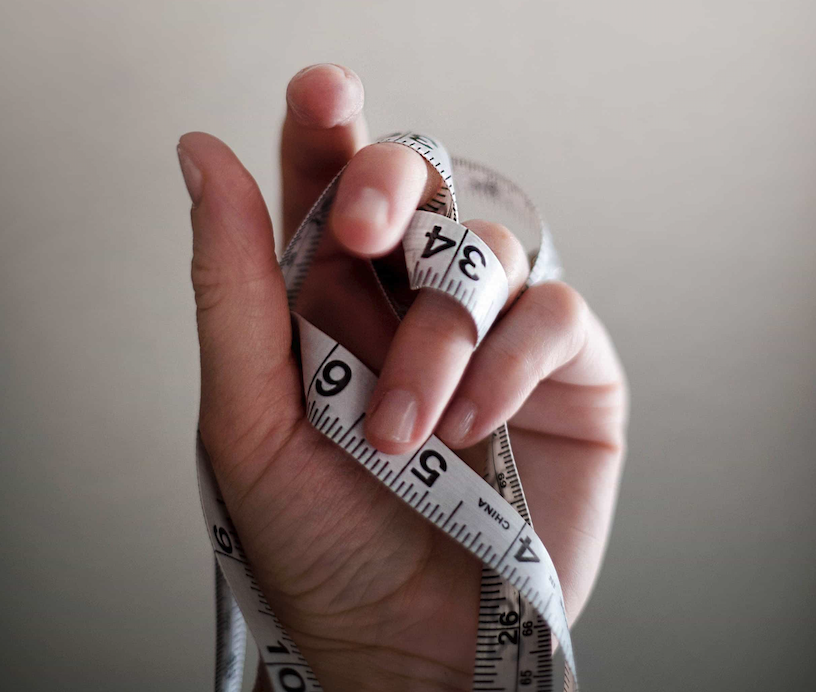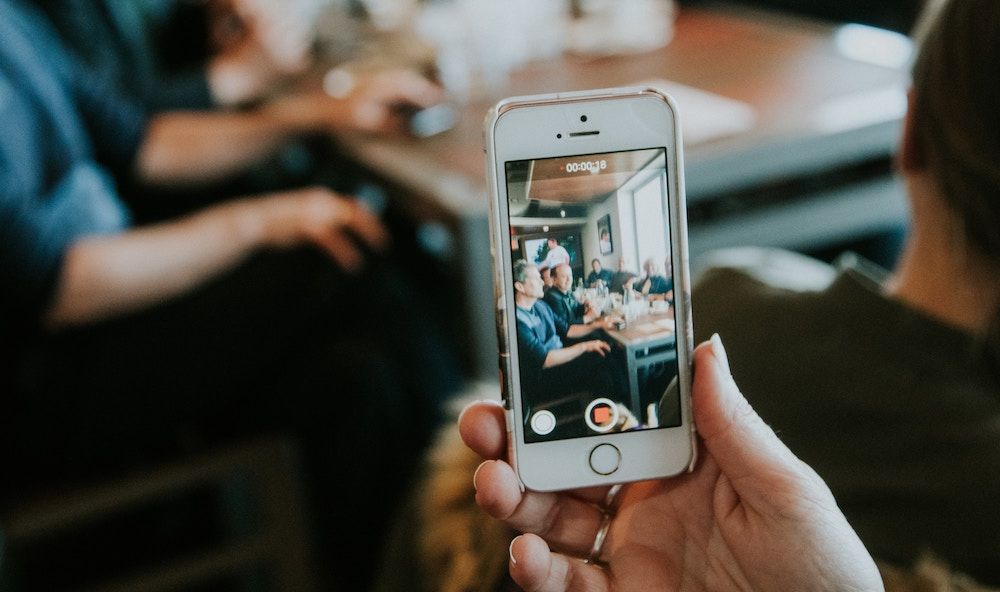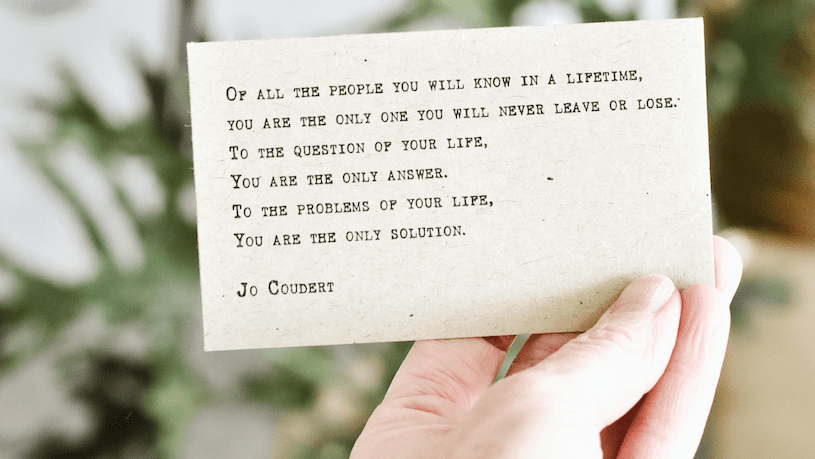Hypnotherapy for Weight Loss: Does It Really Help?
updated on Dec 29, 2019

Worried about your weight, or looking to find new ways to focus on your fitness? With more and more of us turning to alternative ways of treating our bodies (and minds), we ask: Is hypnotherapy really the right answer for weight loss?
Over half of us want to be doing more about our health, with over a third (38%) of us trying to lose weight at any one time in the UK. It’s little wonder really; according to statistics, over a quarter of adults in England (28.7%) are obese, with a further 35.6% falling into the overweight category. Yet our focus on how we look and what we eat is concerning.
While headlines focus on how unhealthy we are as a nation, campaigns often stop at obesity, few speak about the 1.6 million in the UK alone who are thought to be directly affected by an eating disorder. Fewer still understand the impact of lesser spoken about conditions such as binge-eating disorder, as well as the negative impacts diet talk can have on our mental health and wellbeing.
I’ve always been a ‘fat girl’. I’ll admit, I was one of those girls in my teens and early 20s who was always bouncing from one fad diet to another. You name it, I’ve tried it. Yet as my 30s begin to rapidly approach, I make myself stop and take a step back each time I see a new weight loss wonder making the headlines.
Finding a quick and easy way to lose weight and reach our ‘perfect’ or ‘target’ weight is something many of us feel pressured to do. Yet, shouldn’t finding a healthy, sustainable way to put our health and wellbeing first be our real goal? Easy quick-fixes may sound appealing, but can they really stick?
If there truly was a foolproof way to lose weight, get fit, and fix all of our problems, wouldn’t we all be doing it by now? With that, I’m looking at some of the ways in which hypnotherapy can help you take control of your eating habits and make positive changes, as well as how you can start focusing on your health and wellbeing to create sustainable goals that benefit you (rather than focusing on a number on the scales).

What is gastric band hypnotherapy, and does it really work?
Getting a ‘virtual gastric band’ is one of the ways people use hypnotherapy to help with weight loss. Gastric band hypnotherapy uses suggestion techniques to get your subconscious to think that you have had a gastric band fitted around your stomach, in the hopes of helping you lose weight. Real gastric bands involve surgery (and all of the potential risks and complications) to constrict your stomach, limiting the amount of food you can physically eat. For many, hypnotherapy for a virtual gastric band offers a safe alternative. But how does it work – and more importantly, can it really help us to lose weight?
Hypnotherapists who offer gastric band hypnosis typically use a two-pronged approach which looks to identify what is causing your emotional eating, then using relaxation techniques, they suggest on a subconscious level that you feel fuller quicker (mimicking the effects of the surgery).
But does hypnotherapy for weight loss really work? According to clinical hypnotherapist Natasha Kelly BSCH reg PGDip, hypnotherapy can help you to uncover your motivation, change associations with food, re-programme your subconscious, and help you to deal with your emotions. She explains: “Digging deep reveals our hidden motivations and desires. It’s important to ask ‘What do you want? Why do you want it? How will you know you have achieved it? How will you feel when you have it? What do you lose by having it?’
“In most cases, a person who is overweight got there because of an emotional reason. When they diet they are treating the symptom and not the cause. Hypnotherapy can treat the cause, thus enabling the weight loss and ensuring that any weight loss does no return at a later stage.”
“Digging deep reveals our hidden motivations and desires. It’s important to ask ‘What do you want? Why do you want it? How will you know you have achieved it? How will you feel when you have it? What do you lose by having it?’”
And as hypnotherapist Becca Teers explains, diets alone often don’t work for weight loss. “Diets don’t tend to deal with the permanent lifestyle changes required, such as a sustainable long-term change in our eating habits and attitude to food. Many diet plans are temporary and can be difficult to maintain on an on-going basis, often because they are too restrictive or they totally deprive us of our favourite foods.
“These regimes can be adhered to short-term but don’t work so well in the long run. By causing us to count calories or consciously measure portion size or even totally omit types of foods, many diets can make us more obsessed with food and our eating. This can take the pleasure out of eating and can lead us to crave more of certain foods and a diet-overeat/binge cycle can start.”
While many of us know and recognise that quick-fixes aren’t the right answer to losing weight in a healthy, sustainable way, we also know that the lure of the next big thing – that next headline-grabbing fad that promises to help us feel happier and healthier with just a few quick steps – is going to keep pulling us in again and again. But is that because we really think they’ll work?
Does anyone honestly think they will be happier and life will be easier if they can only shed a few more pounds? Or are we going along with the crowd, to avoid facing the issues that are really weighing us down?

Making healthy choices for a happier lifestyle
1. Ask yourself: why?
Why do you want to lose weight? Is this something you want to do for yourself, or is it something you feel pressured into trying because of friends, family, or even what you’re seeing and hearing on social media or in the news?
There isn’t anything inherently wrong with wanting to lose weight, but do you have a reason or a goal in mind? Or is this something you are turning your time and energy towards to avoid identifying other focal points of your worry, anxiety, and how you are really feeling?
According to research, one in five of UK adults have admitted that what we see on social media has caused us to worry about our body image. Research by the Mental Health Foundation highlights the link between higher body dissatisfaction and a poorer quality of life, including psychological distress, unhealthy eating behaviours and eating disorders. Body satisfaction, on the other hand, is linked with better overall wellbeing and fewer unhealthy dieting behaviours.
One in five UK adults have felt shame because of their body image during the past year. Over a third of us have felt anxious or depressed because of concerns about their body image. One in eight have experienced suicidal thoughts or feelings because of concerns around their body image. Just let that sink in for a moment; that’s a huge impact our perception of our body is having on us.
If you’re worried diet culture may be affecting your choices, Nutritionist Pixie Turner (ANutr, MSc) shares tips on how to spot diet culture BS, or if you’re worried that friends or colleagues may be influencing your decision to lose weight, read these tips on how to avoid diet talk.
Does anyone honestly think they will be happier and life will be easier if they can only shed a few more pounds? Or are we going along with the crowd, to avoid facing the issues that are really weighing us down?
2. Focus on you
Your self-worth, self-confidence, and self-esteem all play significant parts in how happy you are with yourself as a person – including how you look and feel. Our behaviour, body language, how we hold ourselves and speak in different situations all show how we are feeling about ourselves and how confident we really are. When our self-belief suffers, we can start to second guess our choices and decisions. For some of us, this can lead to questioning parts of our lives, from our careers to our physical appearance.

When our confidence takes a hit, it’s an understandable reaction that we try to find ways to ‘fix’ ourselves – but making physical changes isn’t always the right answer; sometimes, change needs to come from within.
NLP practitioner and confidence coach, Vicki French, explains: “It all starts from within. You are not broken and therefore you do not need fixing. Once you start to notice your self-talk and your self-language, you will soon come to realise that you are self-sabotaging. Becoming aware of your self-sabotaging thoughts and language will allow you to realise the damage you are creating, you can then replace with self-praising thoughts and language and discover the true you.”
Working with a confidence or personal development coach can help you to develop a more positive mental attitude, pinpoint areas that are causing you to feel insecure, and work towards feeling happier in your own skin. If you feel like you life is off balance or you are struggling to make time for self-care and looking after yourself, they can also help you to readdress your work/life balance to create a more sustainable, healthy routine.
3. Connecting mind and body
Body positivity may have made mainstream headlines, but for those of us with a negative self-image, the body-loving self-acceptance movement can feel like a step too far. How can you make that jump from wanting to change so much about how you physically look, to celebrate all of your curves, bumps, and wobbly bits?
Body neutrality could be the answer. Offering a safe space to accept your body without the pressure to celebrate it, for those with chronic health conditions, disordered eating, disabilities, or body dysmorphia, body neutrality can feel live a gentler introduction to self-acceptance.
If you struggle with food and eating, embracing mindfulness may be another way to help. Shown to help those with disordered eating patterns to see food in a different light, mindfulness (the act of focusing on and being present in the moment) can help you to recognise when you are physically full without focusing on any associated emotions (positive or negative).

4. Work with an expert
If weight loss is the route you want to go, working with a nutrition expert can help you to create a sustainable plan of action that can identify and address underlying issues, help you to learn more about nutrition, portion control, emotional eating, and creating a balanced diet. With the support of a nutritionist, you can spot the signs of disordered eating before they develop further, helping you to discover more about the link between nutrition and mental health.
If you have struggled with the cycle of fad diets, working with a therapist could be the answer to helping you to break free. Dr Patricia Moran, PhD CPsychol, AFBPsS, MBACP explains how therapy can help you to lose weight through addressing the destructive dieting cycle.
“The way to break this destructive cycle is to find other ways of changing your relationship with food, which is where the support from a psychologist comes in. Identifying [and enaging] your overeating triggers, learning to trust your body’s own signals for food, improving your relationship with yourself and your body, [and] rebalancing your life.
“Changing your relationship with food and your body can be difficult if you’re going it alone – that’s why getting professional psychological help is so important. This approach won’t give you results overnight like the claims made by fad diets. It’s about undoing old habits, making lasting changes and investing in yourself.
“Whatever your weight or issues around food, getting professional help can unhook you from destructive cycles and help you to find solutions for the long-term.”
5. Recognise weight and fitness aren’t always linked
Weight and fitness aren’t always as clean-cut as we would like to think. You can be thin while eating an unhealthy diet. You can be fat while doing yoga and going to the gym five days a week. Your physical appearance isn’t always linked to how healthy you are. Losing weight doesn’t mean you will become happy. Even personal trainers have said it: you can be fat and fit.
We’re not denying that yes, there are many health-related risks associated with obesity and weight. Being clinically obese can put you at higher risk of type 2 diabetes, high cholesterol, high blood pressure, and even some types of cancer. However, making healthy, sustainable choices around how you use your body through exercise and what you eat can have a significant impact.

So, hypnotherapy for weight loss may be an option for some - gastric band hypnosis can offer a safer alternative to surgery, while hypnotherapy can also help to manage emotional eating and understand what may cause your relationship with food and weight. However, it may be that you need to go deeper than aesthetics.
Instead of focusing on how you look on the outside, it’s time to focus on putting your mental health and wellbeing first. It’s time to ditch the quick-fixes, and address the underlying issues and to make sustainable changes – not because of the time of year, pressure from friends or family, or what the media want us to think.
No-one should feel pressured to change themselves to please others. It's time to really question what you want, and whether now is the right time to start making changes – whatever they might be.

